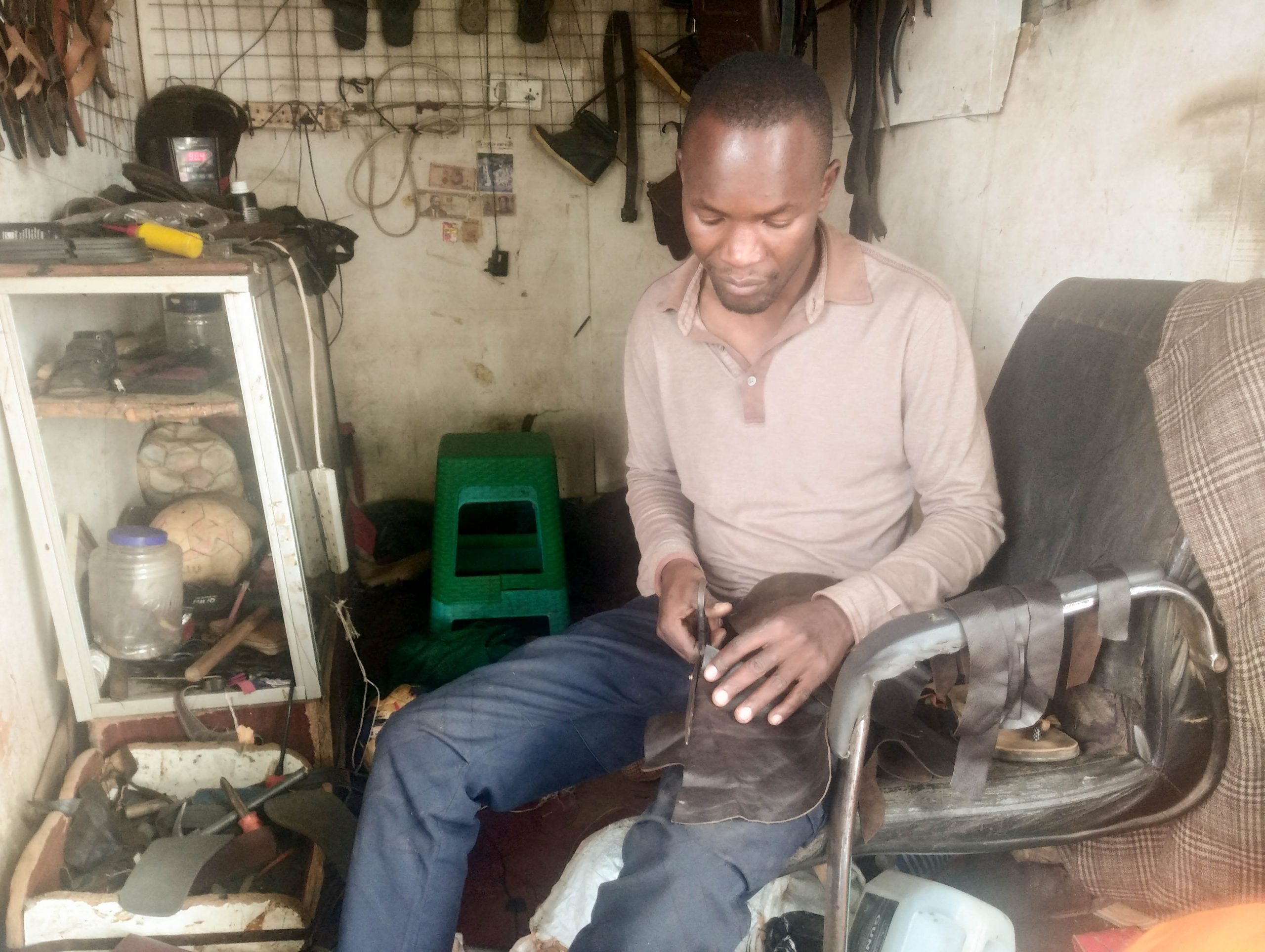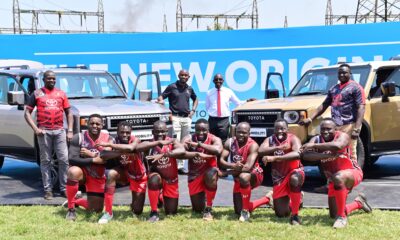Business
Environment Sustainability: Local entrepreneur recycles discarded rubber to make beautiful shoes
By Wabomba Joseph
Mr James Ochan had worked as a fuel pump attendant for over 5 years until the economy shut down due to the global covid-19 pandemic. Ochan like many other Ugandans lost his job when the company decided to downsize employees.
While declaring the country’s first lockdown following increasing covid-19 cases in neighbouring countries on March, 18th, 2020, President Yoweri Museveni announced the ban on public transport and closure of non-agricultural businesses causing a crisis in some sectors including the fuel business.
Ochan realized that there was a lot of carbon emission from burning old tyres that were littered all over the community polluting the air and negatively impacting the environment.
He based his idea on a report survey of 2015, by ATCMASK, on Air pollution in Uganda, causes, effects and solutions for Air Pollution, people in Uganda are more likely to die from air pollution than those in Tanzania, Rwanda and twice as likely as those in Kenya, figures from World Health Organization show (The mortality rate for air pollution in Uganda was 155.7 for every 100,000 in 2016.
Ochan sought to address the impact of air pollution by starting up the shoe-making business as a way of combating carbon emissions, and maintaining clean and fresh air in the environment and yet it would also solve the inadequate footwear in his community hence a lucrative business opportunity to help him fend for his family as well.
Without a single coin, he started shoe making leveraging on the existence of youths in his community to collect all the littered rubber from old tyres hence solving an environmental problem while harnessing income from local shoe making of good and quality shoes for both women and men.
“I tried mobilizing the youth in the local community to help collect the old tyres but many would ask for money before they could embark on the assignment” he notes.
He finally resolved to borrow money from a friend promising to pay back in instalments ostensibly after the business had picked.
A male friend who was a former workmate was the first person he thought of and with a well-laid plan, he borrowed 200,000Ugshs.
“I immediately looked for a single room rental house and paid 50,000Ugshs promising to settle the remaining 50,000Ugshs at the end of the month. Luckily, the landlord understood my situation,” he recalls.
He would then start a small shoe factory dealing in both men’s and ladies’ shoes, and tyre bags hoping to earn profit enough to provide for his family and also sustain the business. “
What started as a means of survival for Ochan and his family, has since turned lucrative and become his source of livelihood.
On a normal day, he makes 100,000Ugshs in sales, earning 30,000Ugshs profit which totals 900,000Ugshs a month enough to pay his bills.
During a recent interview, Ochan revealed that he had started a saving plan with the hope of purchasing a piece of land where he would build his a shoe factory and a home.
Asked whether he would quit the shoe-making business and look for formal employment, he laughs off saying he has decided to ‘stay away from formal employment’ and stick to the shoemaking business.,
Ochan draws his inspiration from the word of God and urges men going through similar ordeals not to lose hope, saying that through hard work and determination, they can earn a living.
‘It is painful to accept the loss of a well-paying formal job but we should not allow the sad situation to deter us from seeing light at the end of the tunnel,’’ said Mr Ochan.
A total of 50 youths and 5 former fuel pump attendants are now running their own local shoe-making stalls having benefited from his inspiration and courage to start, forsaking his former job.
The former colleague says the fear of letting go of the former job almost blocked them from exploiting the entrepreneurial world.
“At first, I was reluctant to start the local shoe-making stall business thinking it is for the failures in life but after witnessing my fellow former employee, I realized it was the best decision I had taken’’ says Mr Onyango.
The District Commercial officer of Lira City, Mr Herbert Okello noted that 30% of the businesses in the city are on small-scale production and local shoe making is one of those rare ones that are not popular but a form of income source and solves grave environmental challenges encountered by the city and district at large.
‘In this city, I have not often heard about such businesses still in existence but if they exist, then they are few people surviving through it, Okello reiterates.
Overall, according to NEMA, the risk of air pollution is often dependent upon the concentration of pollutants in the air and the amount of time persons spend within the polluted environment therefore recycling plays a pivotal role in combating the environmental concerns that impact the health of citizens.
NEMA reports further indicated that air pollution is a resultant effect of the burning of discarded materials like old tyres and plastics among others.
This publication was produced with the financial support of the European Union. Its contents are the sole responsibility of Wabomba Joseph and do not necessarily reflect the views of the European Union.










































